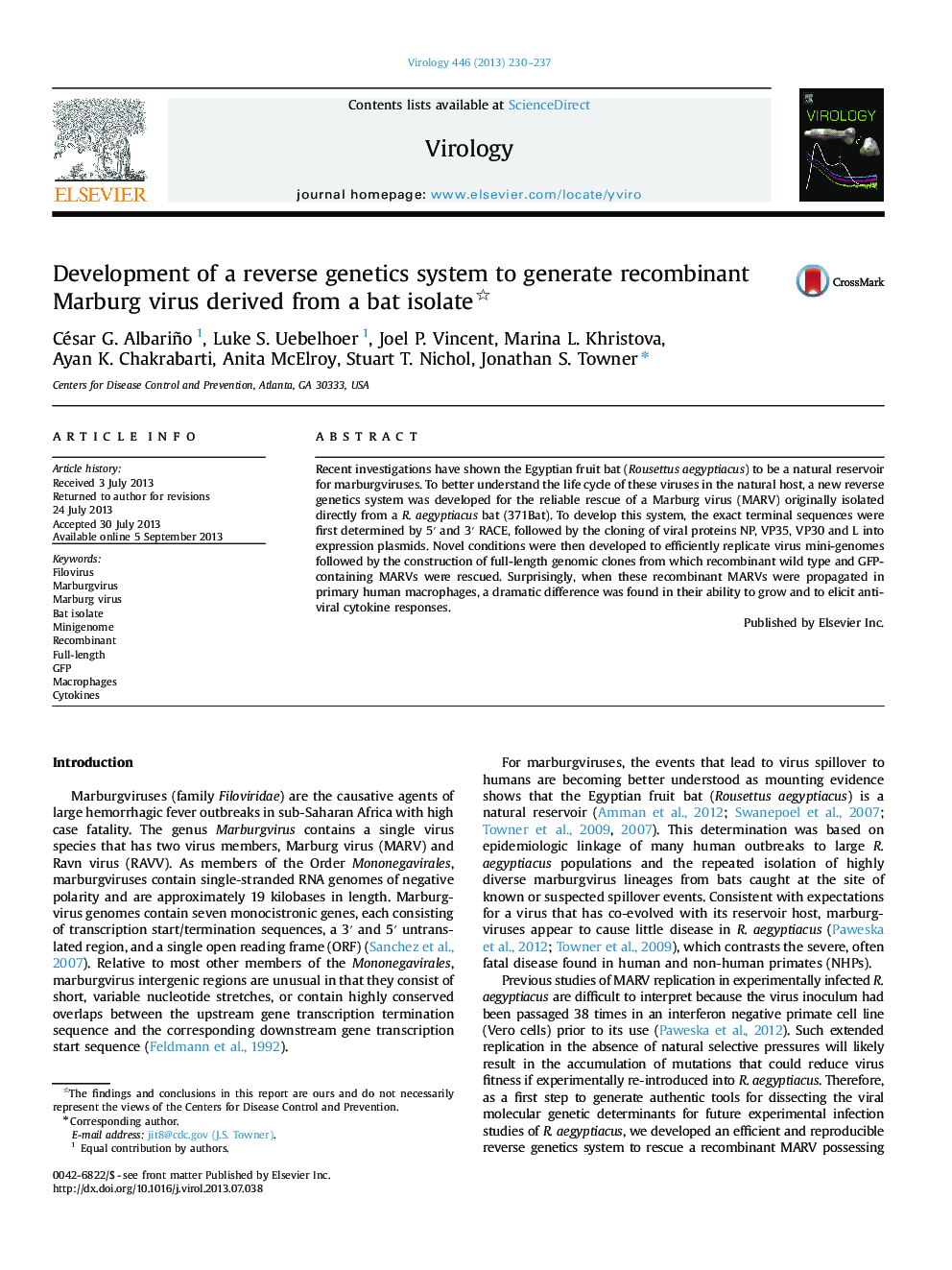| Article ID | Journal | Published Year | Pages | File Type |
|---|---|---|---|---|
| 6140713 | Virology | 2013 | 8 Pages |
Abstract
Recent investigations have shown the Egyptian fruit bat (Rousettus aegyptiacus) to be a natural reservoir for marburgviruses. To better understand the life cycle of these viruses in the natural host, a new reverse genetics system was developed for the reliable rescue of a Marburg virus (MARV) originally isolated directly from a R. aegyptiacus bat (371Bat). To develop this system, the exact terminal sequences were first determined by 5â² and 3â² RACE, followed by the cloning of viral proteins NP, VP35, VP30 and L into expression plasmids. Novel conditions were then developed to efficiently replicate virus mini-genomes followed by the construction of full-length genomic clones from which recombinant wild type and GFP-containing MARVs were rescued. Surprisingly, when these recombinant MARVs were propagated in primary human macrophages, a dramatic difference was found in their ability to grow and to elicit anti-viral cytokine responses.
Keywords
Related Topics
Life Sciences
Immunology and Microbiology
Virology
Authors
César G. Albariño, Luke S. Uebelhoer, Joel P. Vincent, Marina L. Khristova, Ayan K. Chakrabarti, Anita McElroy, Stuart T. Nichol, Jonathan S. Towner,
